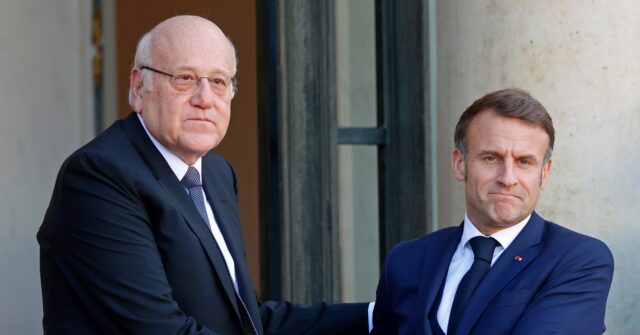French President Emmanuel Macron announced a substantial financial commitment of 100 million euros to support Lebanon amidst the ongoing conflict involving Israel and Hezbollah. During an aid conference held in Paris, which aimed to raise half a billion euros ($540 million) in total support for Lebanon, Macron emphasized the urgent need for a ceasefire and the cessation of hostilities. He expressed that France’s contributions would encompass not just monetary aid but also support for equipping the Lebanese army, aligning with United Nations Security Council resolution 1701. This resolution, established post the 2006 Israel-Hezbollah war, seeks to restore control and stability in southern Lebanon.
Lebanon’s Prime Minister, Najib Mikati, highlighted the necessity for the international community to unite in its call for an immediate ceasefire, echoing Macron’s sentiments. The current conflict has resulted in significant casualties and displacement, with over 1,550 lives lost and around 800,000 displaced according to United Nations estimates. The escalation of violence began with Israel’s ground offensive against Hezbollah, triggered by the Hamas attack on October 7, 2023. As the situation continues to unfold, both leaders underscored the importance of diplomatic efforts and a coordinated international response to mitigate the ongoing humanitarian crisis.
While France’s engagement in Lebanon is historically rooted, the limited attendance at the conference could hinder diplomatic progress. Notably, Iran and Israel were absent from the talks, and the United States was represented only by a deputy to Secretary of State Antony Blinken. Macron remarked on the challenges faced by Israel, stating that military action alone does not equate to victory, stressing the need for Hezbollah to cease provocations against Israel. He warned that becoming embroiled in brutality is counterproductive to defending civilization, underscoring the complexity of resolving the conflict through military means alone.
International support for Lebanon was also voiced by Germany, pledging 96 million euros towards humanitarian aid, and the United Nations Secretary-General Antonio Guterres, who urged the strengthening of state institutions in Lebanon, particularly its armed forces. France’s attempt to mediate the situation hinges on three key areas: diplomatic negotiations for a ceasefire, the provision of humanitarian assistance, and strengthening Lebanon’s domestic framework to maintain stability. French Foreign Minister Jean-Noel Barrot indicated that France is advocating for a temporary 21-day ceasefire as a step towards a more enduring resolution to the ongoing violence.
Despite these discussions, observers like Karim Bitar from Saint-Joseph University in Beirut pointed out that the vast needs of Lebanon could render even substantial aid amounts as merely temporary solutions to deeper issues. The emphasis on building Lebanon’s institutions, particularly the armed forces, aligns with the broader goal of establishing unity and sovereignty within Lebanon. Acknowledging Resolution 1701 as a vital pillar for peace, both Macron and Mikati reiterated the importance of having the Lebanese army and UN peacekeepers as the sole armed forces at the nation’s border with Israel.
In conclusion, the Paris conference marked a critical moment for Lebanon as international actors sought to navigate the complex realities of the ongoing conflict. The announcements of financial support, the call for a ceasefire, and the enhancement of Lebanon’s military capabilities reflect a concerted effort to address both the immediate humanitarian needs and the long-term stability of the region. However, the absence of key stakeholders such as Iran and Israel raises questions about the effectiveness of the discussions and the future of peace and security in Lebanon and its relations with neighboring Israel. The situation remains precarious, and the effectiveness of the proposed initiatives will depend on the ability of international partners to collaborate and foster lasting solutions.

